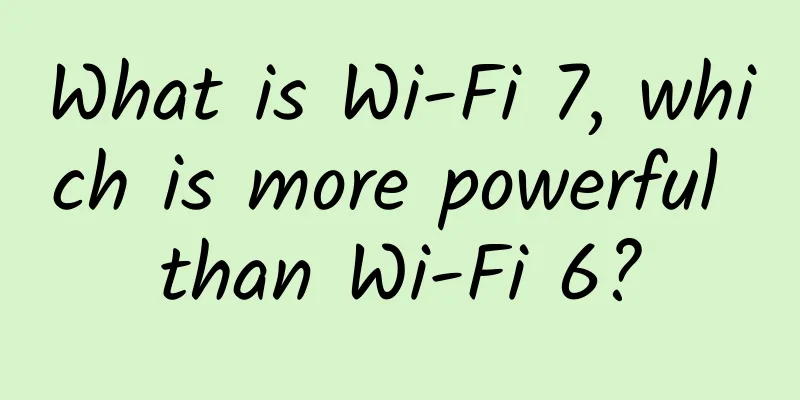What is Wi-Fi 7, which is more powerful than Wi-Fi 6?

|
As we all know, Wi-Fi 6 can be said to be one of the hottest buzzwords in the current technology field. Now that Wi-Fi 6 is just beginning to become popular, scientists have already begun to promote Wi-Fi 7.
It is reported that the speed of Wi-Fi 6 can reach 9.6 Gbps, while the speed of Wi-Fi 5 is 3.5 Gbps, which shows that the improvement is still very significant. However, the speed of Wi-Fi 7 can reach up to 30Gbits per second, which means that it can provide better streaming video, cover longer distances, and reduce congestion. For this new standard, the Wi-Fi Alliance has not yet widely promoted it. At present, the three latest Wi-Fi standards are IEEE 802.11n, 802.11ac, and 802.11ax, which are certified as Wi-Fi 4, Wi-Fi 5, and Wi-Fi 6, respectively. Therefore, 802.11be is a strong candidate to receive the Wi-Fi 7 label. In the future, this technology will not only transmit data faster, but it will even be able to detect the user's physical location and breathing rate, etc. We can imagine the future applications of this technology. For example, when an elderly person is alone at home, if a Wi-Fi with the above functions is installed in her house, we can know whether her behavior is normal and whether she has fallen. But there is no guarantee that Wi-Fi 7 will add human detection capabilities when it is released. Not to mention, it will take at least four years for the next Wi-Fi standard to be released. Nevertheless, the possibility of allowing home networks to detect human presence is still significant because it can open the door to more innovations. Such a system can even be used to automatically open doors. When you return home, the home Internet will detect your presence and combine this data with the signal from the device you are wearing or the camera system, and it will automatically unlock the door when you walk up the stairs. It can be said that we have truly entered the era of the Internet of Everything. Finally, before this happens, the IEEE needs to ensure that these rights are strongly protected, including for individual privacy, and that complex Wi-Fi networks are protected from intrusion. The IEEE has assigned a dedicated team to address privacy issues in the new Wi-Fi standard. |
Recommend
Great news: Global IPv6 usage rate hits a new high, and my country's IPv6 will be fully popularized
According to Google user statistics, as of June t...
China's 5G users account for more than 70% of the world's total
The latest data from the Ministry of Industry and...
5G is a hot topic, but 4G module application data is still rising
According to the latest data released by the Mini...
Justg: South Africa cn2 gia line (three networks) VPS annual payment starting at $39.99, 500M bandwidth, KVM architecture
Justg is a relatively new foreign VPS service pro...
Teach you how to use the next generation Internet protocol "IPV6"
IPv6 is called the "next generation Internet...
How to Make Ethernet Cable Longer
Looking to extend your existing Ethernet cable, o...
Issues that need to be resolved before NFV large-scale deployment
NFV is a key technology that enables network reco...
Wu Jian from CommScope: In the future, the two development directions of data centers are centralization and edge computing
【51CTO.com original article】 Do you know how much...
HostDare: 25% off NVMe VPS in Los Angeles starting at $19.5/year
I received the latest promotional email from Host...
5G will make your 4G mobile phone obsolete. How can you become a "pig" in the 5G trend?
[[223756]] According to Gartner data, the total s...
From WiFi to NB-IoT, exploring the high-tech access methods of smart door locks
Hello everyone! I am Xiaomi, a 29-year-old who is...
VMISS 30% off for all items, monthly payment from 18 yuan, Hong Kong CN2/Japan IIJ/Korea CN2/Los Angeles CN2 GIA/AS9929, etc.
VMISS is offering a 30% discount on all VPS hosts...
6 considerations for new IT leaders in digital transformation
[[397841]] The journey of digital transformation ...
Transforming the Enterprise with 5G Technology
For years, people have been talking about the tra...
LOCVPS 20% off, Japan VPS/Korea VPS/Hong Kong VPS/US VPS monthly payment starts from 29.6 yuan
LOCVPS is a long-established Chinese hosting comp...









